Meet the Guardians of Tunisia’s Sejnane Pottery Heritage
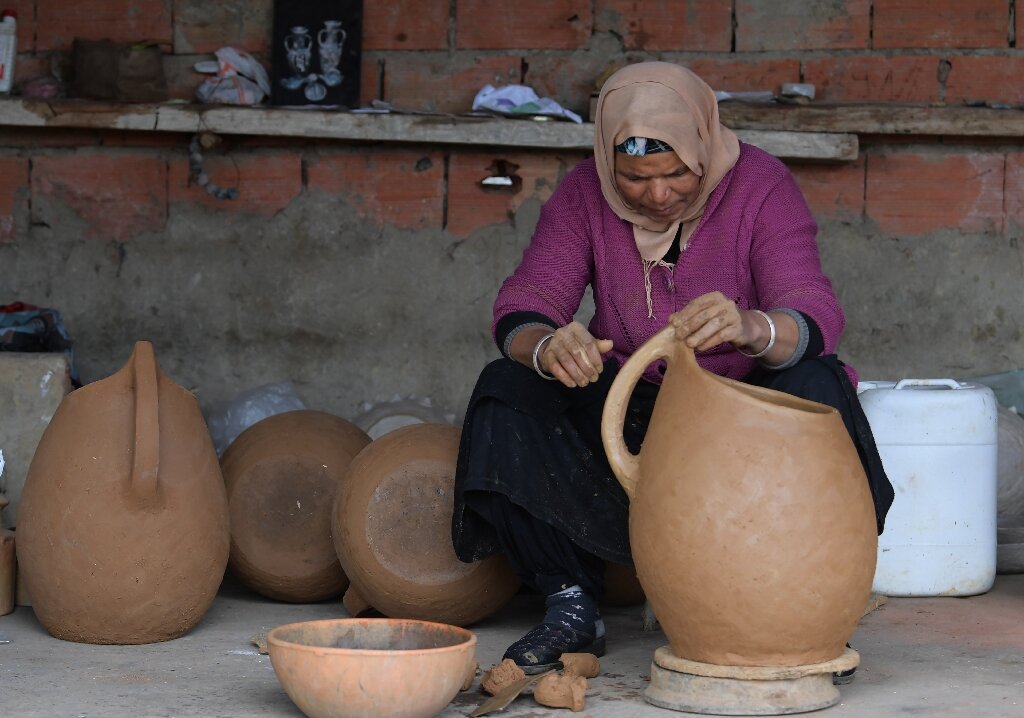
“We want to present it to the world. I did not like it at first, but I became fond of it and worked with clay even though it is labour-intensive.”
SCENES shines a spotlight on youth around the world who are breaking down barriers and creating change. The character-driven short films will inspire and amaze, as these young change-makers tell their remarkable stories.
In the picturesque town of Sejnane, Tunisia, the art of pottery is more than just a skilful craft. It is a cherished tradition that binds generations together. Passed down through time, this ancient practice, primarily led by women, serves as a testament to the community’s rich history and cultural identity.
To ensure that future generations remember this art form, Sejnane’s locals have dedicated themselves to preserving its unique heritage.
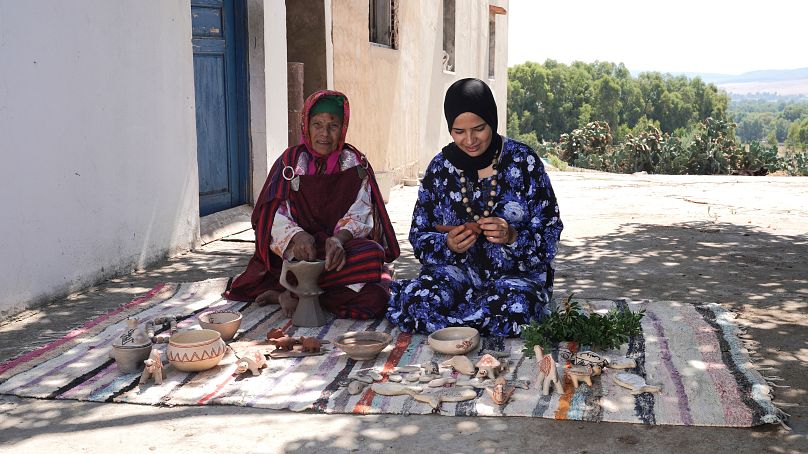
“I learnt this craft from my grandmother. It’s part of our heritage that we must protect, promote, and share with our children,” explains Hajer, a 24-year-old local who profoundly understands the significance of this tradition.
The pottery industry was smashed to pieces
Sejnane’s pottery industry faced multiple obstacles following the 2011 Tunisian Revolution. The town fell under the control of armed groups during this time who targeted pottery items, particularly Sejnane’s unique dolls, claiming they were forbidden statues.
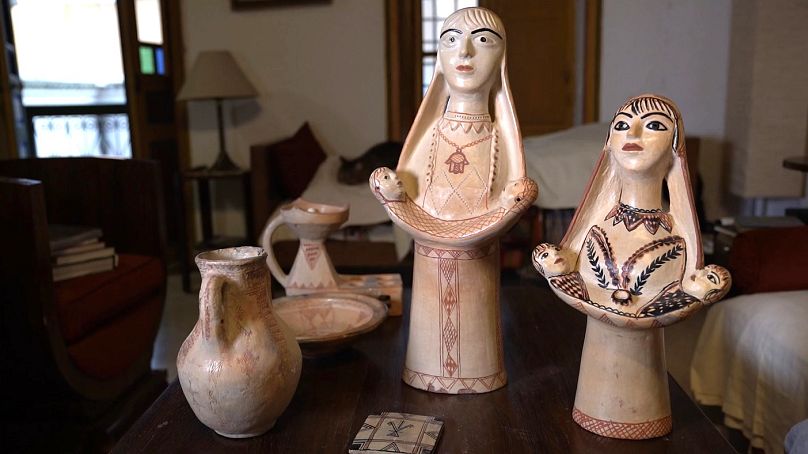
The potters found themselves in an economic and financial crisis as tourists stopped coming to Sejnane, fearing the threat of violence. “This craft is the only source of income here for us women,” says Warda Michrigui, a 47-year-old potter.
According to the European Council on Foreign Relations (ECFR), the Tunisian government has adopted a security-heavy strategy in the peripheries of the country since the revolution in an attempt to contain threats from extremist groups. This approach has largely been successful.
Establishing ‘Sejnenia’
After the revolution, order was restored, and the need for a structured organisation for the female Sejnani potters became evident. An idea emerged to gather these women together under a single entity so that they could organise their work and promote their products. The Sejnania Group was born.
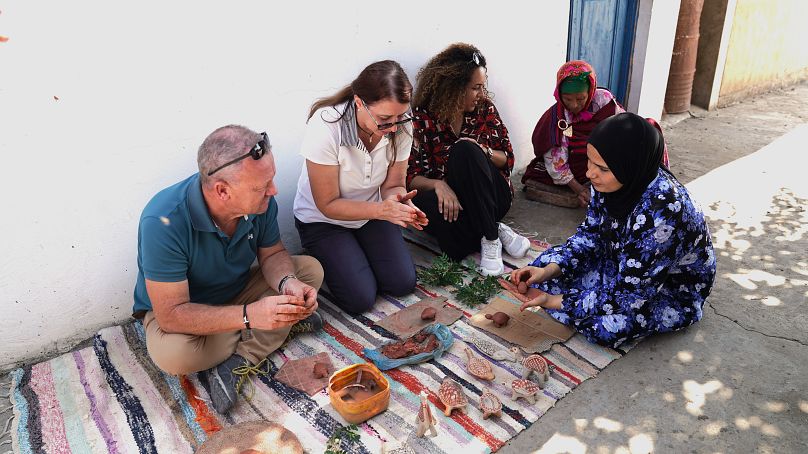
“We helped transform Sejnane into a tourist attraction,” says Project Manager Zaineb Frahat. “The Sejnenia Group started with 35 potters in 2012 and now boasts a group of 100 women,” the 37-year-old proudly adds.
Being a project manager is a busy role. Zaineb coordinates customer orders, participates in exhibitions, and sells and promotes the pottery products that have made Sejnane famous.
“We’ve formed a family, and I consider myself a member of this family,” Zaineb says. “I was really afraid that they would not accept me. It was a huge challenge for me, but I was happy to be accepted by the women. I loved them, and they loved me back,” she says.
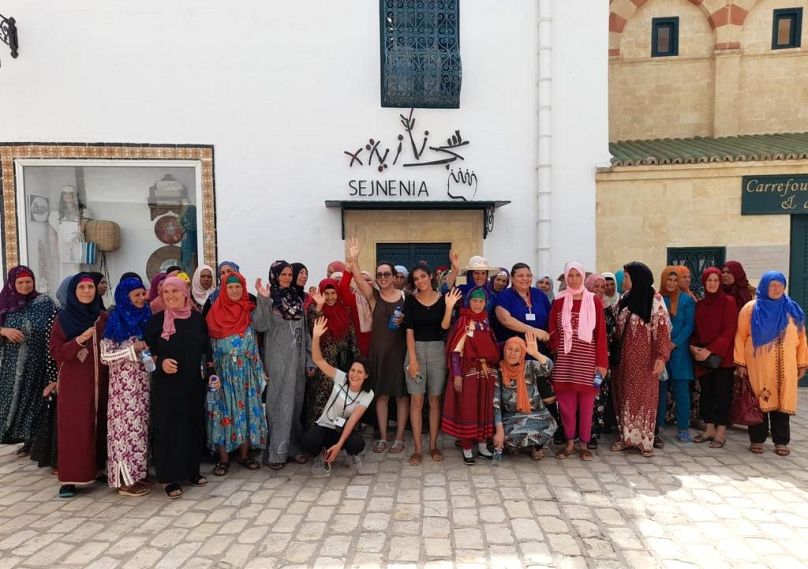
UNESCO recognition
International demand for The Sejnenia Group’s ceramic products increased significantly in 2018 after UNESCO recognised Sejnane’s pottery as an intangible heritage.
Today, young girls learn the craft the same way their mothers did, from their mothers. Their resolve to preserve and champion this cultural legacy has intensified, especially as they witness their pottery being purchased and sent overseas.
“The quality of Sejnane pottery has improved significantly, and prices have risen accordingly,” Zaineb tells SCENES.
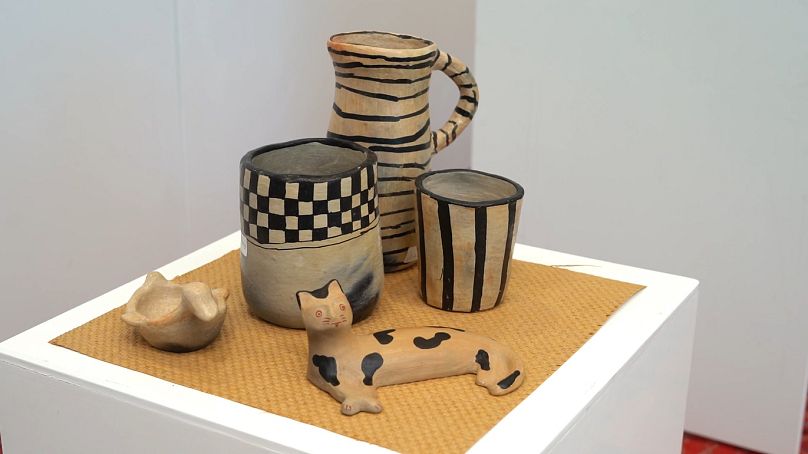
A handcrafted plate, naturally painted, once sold by the roadside in Sejnane for 200 Tunisian millimes. Due to Zaineb’s promotion, its price has risen to 30 Tunisian dinars. The substantial increase has effectively debunked the inaccurate stereotype that pottery-making in Sejnane is a profession devoid of any practical use or importance.
Crafting a promising future
The pottery industry in Sejnane has significantly influenced the economic and social lives of its women, ensuring a steady income for their families. The inspirational group is determined to inspire local young girls to pursue education, embark on their own projects, and safeguard their invaluable pottery heritage.
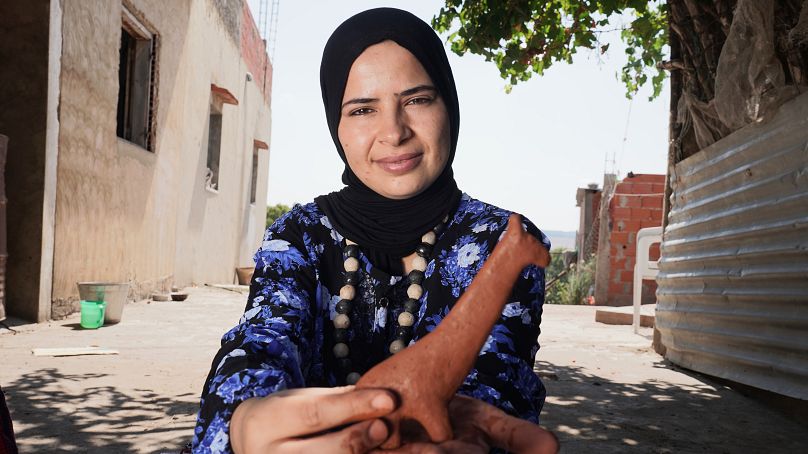
“We want to present it to the world,” says Hajer. “It’s hard work. I did not like it at first because it was an exhausting process, but I became fond of it and worked with clay even though it is labour-intensive,” Warda adds.
The women of Sejnane are determined and committed to preserving their national treasures. They ensure their heritage continues by teaching the next generation the traditional craft of pottery-making.
Source : Euro News





